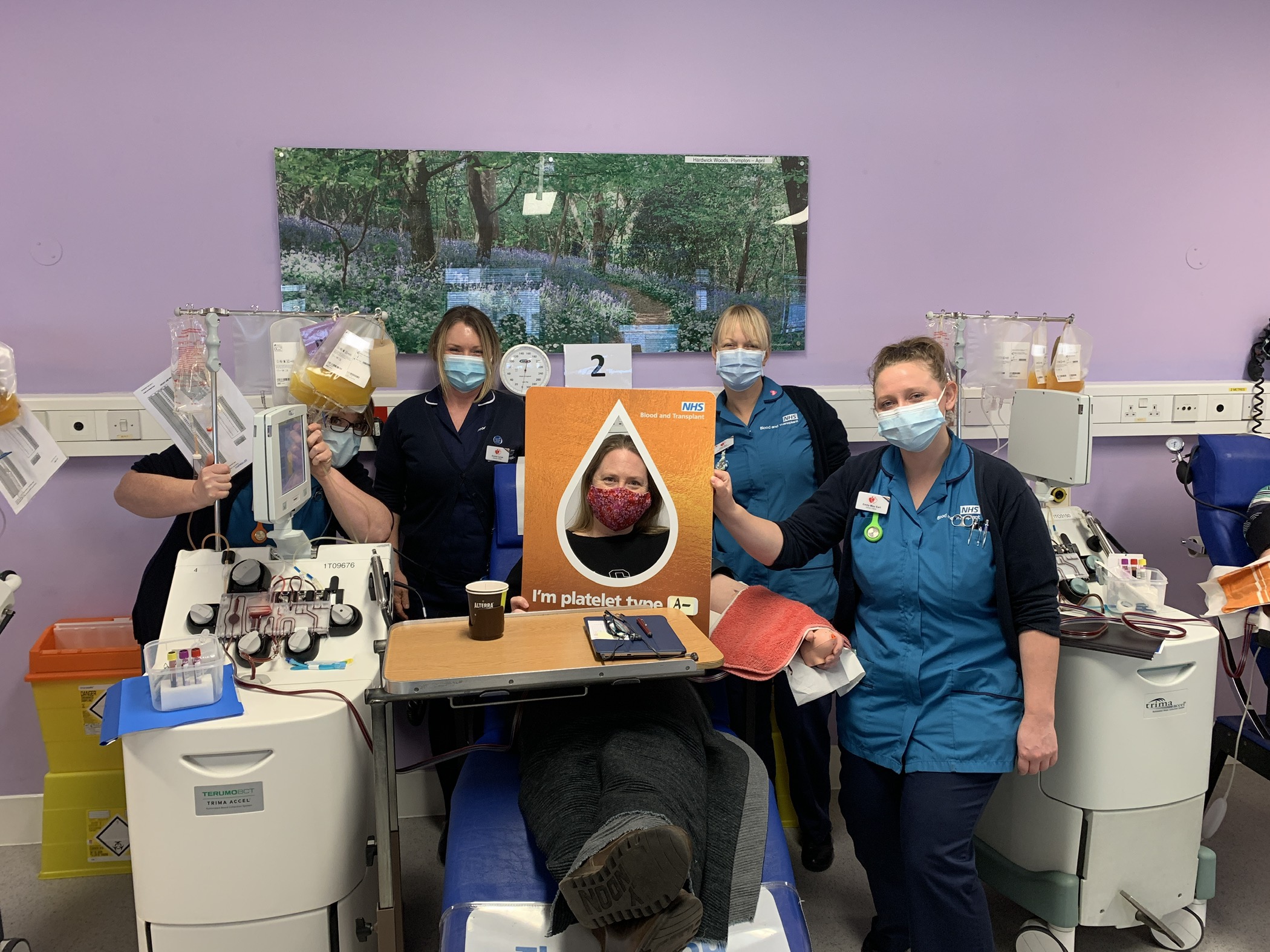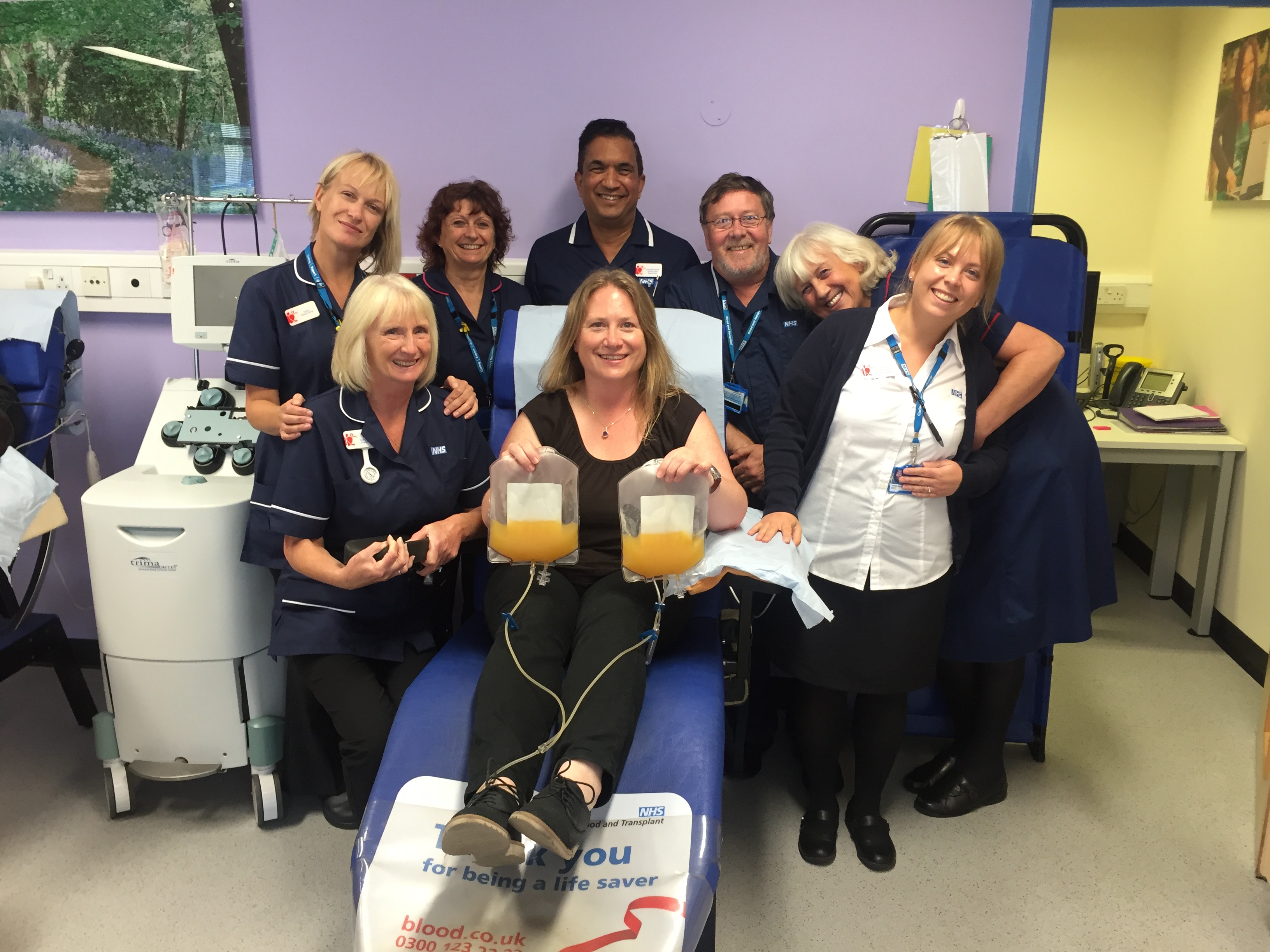“I’m grateful to be healthy enough to donate”
Emma Saunders reflects on her decade of donating platelets
When a memory popped up on Facebook on 23 February 2021, Emma Saunders realised it was ten years to the day that she discovered she could be a platelet donor.
Emma began giving blood in 2006 after a friend’s baby was diagnosed with leukaemia. She made 12 whole blood donations before being asked to consider donating platelets, as this type of donation helps support patients with cancer. Emma's blood type is A negative which means she is the ‘universal platelet type’ as her platelets can safely be given to people with all blood types.

Since then Emma has been travelling 36 miles from her home to Derriford Hospital in Plymouth every four to five weeks. Last year, she reached 150 credits for her donations.
Emma says, "I generally make two donations each time. I'm hoping to be able to continue (and) to reach 250 credits and beyond. Donating platelets is something I am incredibly proud of as I've lost my Mum and really good friends to cancer. I'm always very grateful to be healthy enough to donate."
When asked why she continued to donate during the pandemic, Emma says, "It’s part of what I do and it’s something I’m proud to be a part of."
Emma’s friend, who unfortunately had end-stage cancer, had told Emma what a big difference transfusions made to her and how important they were to her during her illness.
"I have to say the donor team at Derriford Hospital in Plymouth are incredible. They are so kind, caring, professional and there’s amazing banter. In April this year, it was my 10th year of visiting them and they have been consistently brilliant. Some people have retired or moved on but there are still some people there from when I first started donating, which makes it even more special. I am very grateful to them for making donating such a pleasant experience." Says Emma.

Becoming a platelet donor
Platelet donations take place at one of our 23 fixed-site donor centres where we have specialist platelet machines. Blood is taken from the donor, the platelets are extracted, and the red blood cells and other blood components are then returned back into the body. The whole process can take up to two hours.
- Just a small community of 10,000 donors actively give platelets
- More A negative, A positive and AB negative platelet donors are needed to help meet hospital demand
- Nearly 70 per cent of platelet donations are used to help patients with cancer
- Each donation can save or improve the lives of up to 12 children
Visit https://platelets.blood.co.uk/ for more information and to book a platelets sample assessment when you next give blood.
We like to hear stories about donors who have switched to platelet donation. If you would like to help share your experience or story, contact us via email Contact.platelets@nhsbt.nhs.uk.

